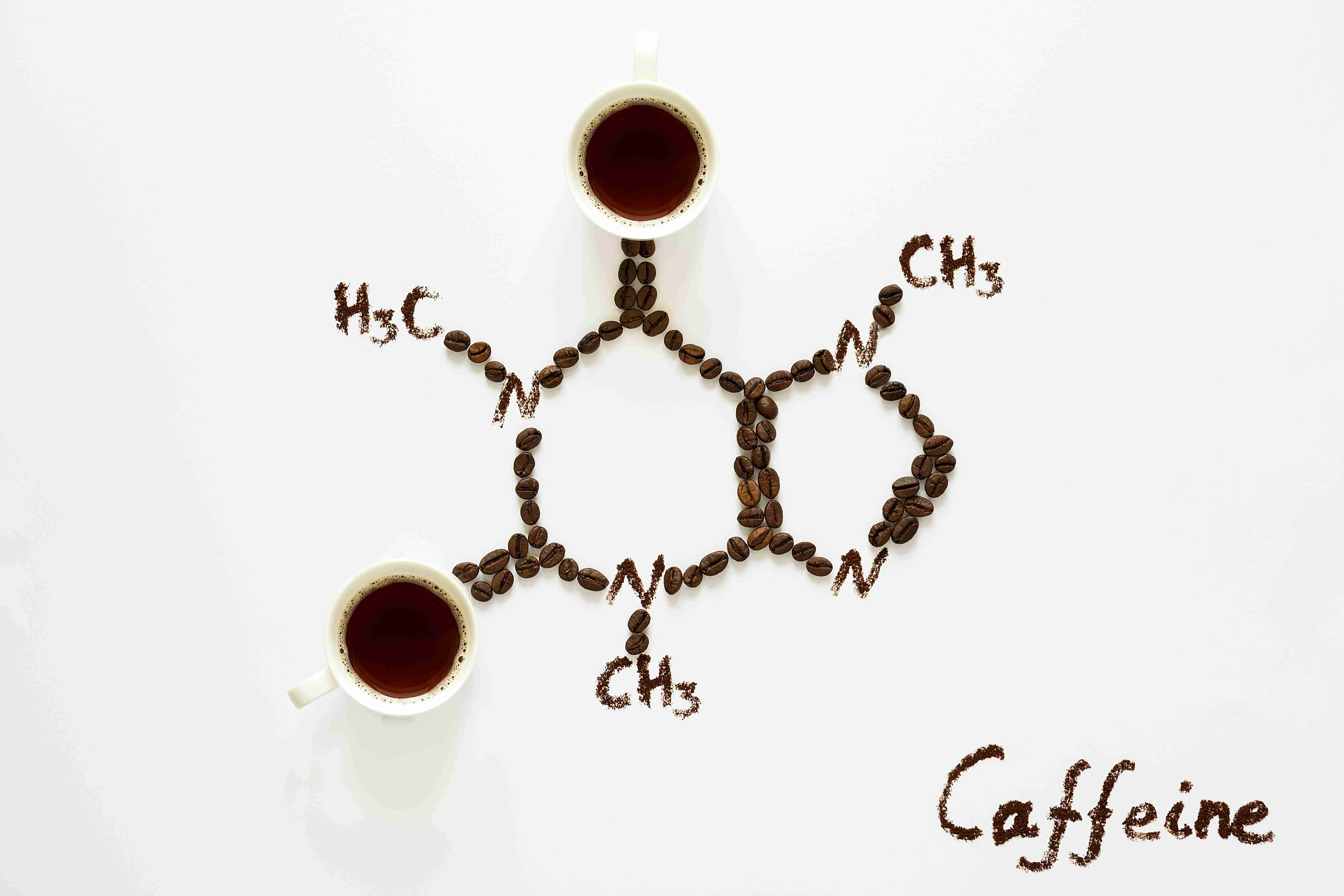Sleep is an essential part of our daily life, as it can negatively or positively impact many aspects of our lives; that’s why we should be focusing on regulating our sleep cycles to get the most beneficial and rejuvenating sleep every night.
However, there are many factors that can impact the quality of our sleep; some of them are related to our sleep environment, and others are physiological as they occur inside our bodies.
One of these factors is the adenosine hormone, which is a natural compound found in the body and plays a crucial role in regulating sleep.
In this article, we will explore the relationship between adenosine and sleep and understand how it affects our sleep patterns.
What is Adenosine?

Adenosine is a nucleoside that plays a crucial role in various physiological processes in the human body. The adenosine structure is found in all living cells and serves as a building block for RNA and DNA molecules. Additionally, it acts as a signaling molecule and neurotransmitter in the central nervous system.
Adenosine acts as a cardioprotective agent by exerting its effects on the cardiovascular system. It helps regulate heart rate and blood pressure by binding to specific receptors on heart muscle cells and blood vessels.
Additionally, it plays a crucial role in regulating the sleep-wake cycle, a fundamental process in how sleep works, which we will discuss later..
The Sleep-Wake Cycle and Adenosine
Adenosine is crucial in promoting sleep by accumulating in the brain during wakefulness. As we go about our daily activities, adenosine levels increase, making us feel more tired and in need of sleep.
Adenosine wakefulness happens when adenosine levels decrease, allowing us to wake up feeling refreshed and alert. adenosine sleep-wake cycle build-up and clearance help regulate our sleep patterns and ensure a healthy balance between rest and wakefulness.
What Does Adenosine Do to Regulate Sleep
Understanding the role of adenosine and its interaction with A1 and A2A sleep receptors is essential for developing effective treatments for sleep disorders such as insomnia or excessive daytime sleepiness.
A1 Receptors
The A1 receptor is found throughout the brain and is responsible for inhibiting neuronal activity. When adenosine levels increase, it binds to A1 receptors, leading to a decrease in neuronal activity and promoting sleep.
This is why adenosine is often referred to as a sleep-promoting substance. The activation of A1 receptors by adenosine helps to initiate and maintain the various stages of sleep, ensuring a restful and rejuvenating experience.
A2 Receptors
- A2A Receptors: When adenosine binds to the A2A receptor, it inhibits the release of neurotransmitters that promote wakefulness, such as dopamine and glutamate. This inhibition leads to a decrease in arousal and an increase in sleep pressure.
- A2B Receptors: When adenosine binds to the A2B receptor, it inhibits the release of stimulatory neurotransmitters, such as dopamine and glutamate, promoting sleep. Furthermore, activation of A2B receptors also leads to an increase in sleep-promoting substances, such as adenosine triphosphate (ATP) and prostaglandin D2 (PGD2).
The Importance of Adenosine in Sleep Health

Sleep is an essential aspect of maintaining good health and well-being. It allows the body and mind to rest, recharge, and repair.
Adenosine plays a crucial role in promoting sleep and regulating the sleep-wake cycle. When we are awake, adenosine levels gradually increase in the brain, creating a feeling of sleepiness.
Acts as a Natural Sleep-Inducing Agent
When we are awake, adenosine binds to receptors in our brain, signaling that it is time to rest. This process helps to initiate sleep and maintain its quality.
By acting as a natural sleep-inducing agent, adenosine helps to ensure that we get the rest we need to function optimally during the day.
Increases Gradually During the Day
The levels of adenosine build up in the brain throughout the day, gradually increasing our feelings of sleepiness.
As adenosine levels throughout the day rise, it binds to adenosine receptors in the brain, inhibiting neuronal activity and promoting sleep. This process helps regulate our sleep-wake cycle and ensures that we get enough restorative sleep.
Plays a Vital Role in the Quality of Sleep
When we finally fall asleep, adenosine levels reach their peak, promoting deep and restorative sleep. Adenosine neurotransmitter helps to regulate our sleep-wake cycle and ensure that we get the necessary amount of rest for optimal functioning.
However, if adenosine levels are disrupted or imbalanced, it can lead to sleep disorders and a decrease in sleep quality.
Regulates Other Sleep-Related Functions
The rise and fall in adenosine levels help signal the brain when it is time to sleep and wake up.
Additionally, adenosine also regulates other sleep-related functions such as promoting deep sleep, reducing arousal, and increasing slow-wave sleep. These functions are essential for maintaining optimal sleep health and ensuring restorative sleep.
Adenosine and Caffeine

When caffeine is consumed, it competes with adenosine to bind to the adenosine receptors in the brain. By blocking these receptors, caffeine prevents adenosine from exerting its sedative effects.
As a result, the individual experiences increased mental alertness and a temporary boost in energy levels. This is why many people turn to caffeine, such as coffee or energy drinks, to stay awake and focused.
However, it is important to note that caffeine does not increase the production of energy in the body. Instead, it masks the effects of adenosine and can disrupt the natural sleep-wake cycle.
This can lead to dependency on caffeine to stay awake and withdrawal symptoms when caffeine consumption is reduced or stopped.
Adenosine and Aging
Adenosine plays a vital role in various physiological processes, including energy metabolism and cellular communication.
As we age, the levels of adenosine in our bodies fluctuate, which can have significant effects on the aging process.
Know more about the relationship between Aging and Sleep.
Cellular Senescence
One area of interest is the role of adenosine in cellular senescence, which is the process of cells becoming less functional and losing their ability to divide and replicate.
Adenosine levels decrease with age, and this decline may contribute to the accumulation of senescent cells in various tissues. These senescent cells can lead to inflammation and tissue dysfunction, which are hallmarks of aging.
DNA Repair Mechanisms
Another aspect of adenosine's role in aging is its involvement in DNA repair mechanisms. Adenosine is known to activate certain enzymes that play a crucial role in repairing damaged DNA.
As we age, the efficiency of these repair mechanisms decreases, leading to an accumulation of DNA damage. This accumulation can contribute to various age-related diseases and accelerate the aging process.
Antioxidant Properties
Adenosine has antioxidant properties, which can help protect against oxidative stress.
Oxidative stress is a key contributor to aging, as it leads to the production of reactive oxygen species that damage cellular components.
By reducing oxidative stress, adenosine may help slow down the aging process and reduce the risk of age-related diseases.
What Happens When Adenosine Regulation Is Disrupted?
Disruptions in adenosine regulation can lead to various negative side effects that could impact the quality of your life.
Understanding the mechanisms underlying adenosine regulation and its health implications can help researchers develop targeted therapies for conditions associated with disrupted adenosine signaling.
Sleep Disturbances
Adenosine is known to promote sleep by inhibiting wakefulness-promoting neurons in the brain. It accumulates in the brain throughout the day and reaches its peak during periods of prolonged wakefulness.
This increase in adenosine levels signals the brain to initiate sleep. However, when adenosine regulation is disrupted, the normal sleep-wake cycle can be disrupted as well. This can result in insomnia, excessive daytime sleepiness, and other sleep disorders.
Energy Metabolism
Adenosine has been found to play a crucial role in regulating energy balance by influencing the breakdown of nutrients and the production of ATP (adenosine triphosphate), the primary energy currency of cells.
When adenosine regulation is disrupted, it can lead to imbalances in energy metabolism, which can contribute to conditions such as obesity, diabetes, and metabolic syndrome.
Inflammation and Immune Function
Adenosine acts as an anti-inflammatory molecule in the body, helping to dampen excessive immune responses and reduce tissue damage. It regulates the production of inflammatory molecules and promotes the activity of regulatory immune cells.
Disruptions in adenosine regulation can lead to chronic inflammation and immune dysregulation, contributing to the development of autoimmune diseases, allergies, and other inflammatory conditions.
Learn more about Immunity and Sleep.
Increased Susceptibility to Seizures
Adenosine acts as an endogenous anticonvulsant, meaning it helps to suppress seizure activity in the brain. It achieves this by inhibiting the release of excitatory neurotransmitters and reducing neuronal excitability.
When adenosine regulation is disrupted, there is a decrease in its inhibitory effects on seizure activity, leading to an increased risk of experiencing seizures.
Boosting Healthy Adenosine Regulation for Better Sleep
Various factors can disrupt the healthy regulation of adenosine, leading to sleep disturbances and poor sleep quality. To boost healthy adenosine regulation and achieve better sleep, several strategies can be implemented.
Regular Exercise
Engaging in physical activity increases the production of adenosine, which helps to promote sleepiness. Exercise also improves overall sleep quality by reducing the time it takes to fall asleep and increasing the amount of deep sleep experienced.
Incorporating regular exercise into one's bedtime routine, such as aerobic activities or strength training, can have a positive impact on adenosine regulation and improve sleep patterns.
Stress Management
Chronic stress can disrupt the balance of adenosine in the brain, leading to difficulties falling asleep and staying asleep.
Implementing stress management techniques, such as mindfulness meditation, deep breathing exercises, or engaging in relaxing activities, can help reduce stress levels and support healthy adenosine regulation.
By managing stress effectively, individuals can create a more conducive environment for promoting restful sleep.
Create a Sleep-Inducing Environment
By creating an environment that promotes relaxation and tranquility, the body can naturally produce and regulate adenosine levels, leading to improved sleep quality.
To create such an environment, it is important to minimize distractions such as noise and light, as they can disrupt the natural sleep cycle.
Additionally, maintaining a comfortable temperature and ensuring proper ventilation can also contribute to a sleep-friendly environment.
Limiting Stimulants
Stimulants like caffeine and nicotine can interfere with adenosine receptors in the brain, making it difficult to fall asleep and disrupting the sleep-wake cycle.
It is advisable to limit or avoid consuming stimulants close to bedtime to allow adenosine levels to naturally increase and promote sleepiness.
Instead, individuals should opt for decaffeinated beverages or herbal teas in the evening to support healthy adenosine regulation and improve sleep quality.
FAQs
Can disruptions in adenosine levels lead to sleep disorders?
Disruptions in adenosine levels have been linked to sleep disorders, such as insomnia and sleep apnea. When adenosine levels are disrupted, it can lead to difficulties in falling asleep or recovering sleep throughout the night.
How can I maintain a healthy adenosine cycle?
To ensure optimal adenosine levels, it is essential to follow a balanced diet rich in foods that promote adenosine production. Regular exercise is also beneficial as it increases the production and release of adenosine in the body. Additionally, getting enough sleep and managing stress levels are equally important in maintaining healthy adenosine and sleep-wake regulation.
What is the relationship between adenosine and restless leg syndrome?
Adenosine acts as an inhibitory neurotransmitter, and when its levels are low, it can lead to hyperactivity in the brain, which may manifest as the restless sensations experienced by individuals with restless leg syndrome.
Does melatonin promote adenosine?
Melatonin may indeed promote the production of adenosine in the brain, and by promoting the production of adenosine, melatonin may contribute to the initiation and maintenance of sleep.
Do adenosine drugs or supplements exist?
While there are no specific adenosine supplements for sleep available in the market, there are certain supplements that can indirectly increase adenosine levels in the body, like caffeine, for example.
Is adenosine a neurotransmitter?
Adenosine does act as a neuromodulator in the central nervous system. Adenosine is released by neurons and glial cells in response to various stimuli, such as hypoxia or increased neuronal activity. It then binds to specific receptors on neurons, inhibiting their activity and promoting sleep and relaxation.
Does adenosine make you sleepy?
Yes, the buildup of adenosine throughout the day is a signal to the body that it needs rest and sleep. Once we fall asleep, adenosine levels gradually decrease, allowing us to wake up feeling refreshed and alert.
How to clear adenosine in the morning?
Getting exposure to natural light as soon as possible after waking up can help suppress adenosine production and increase wakefulness. Additionally, engaging in physical activity or exercise can boost blood flow and oxygen levels, helping to clear adenosine from the system.
What chemical makes you sleep instantly?
When it comes to inducing instant sleep, one chemical that comes to mind is melatonin. Melatonin is a hormone naturally produced by the body's pineal gland, which helps regulate the sleep-wake cycle.
Conclusion
Adenosine is a key player in promoting recovery sleep and maintaining a healthy sleep-wake cycle. Its accumulation in the brain throughout the day signals the need for rest and promotes sleepiness.
Understanding the role of adenosine in sleep regulation can help researchers develop new treatments for sleep disorders and improve overall sleep quality.
Dom Abraham
As the lead content writer at Sleepiverse. Dom pours his heart into writing mattress reviews, bedding product reviews, and medically-reviewed health articles. Dom is from Portugal and likes to spend his free time writing on the beach as it gives him a sense of comfort. Aside from writing mattress reviews in front of the soothing beach view, Dom likes to experiment with new amazing food ideas.


